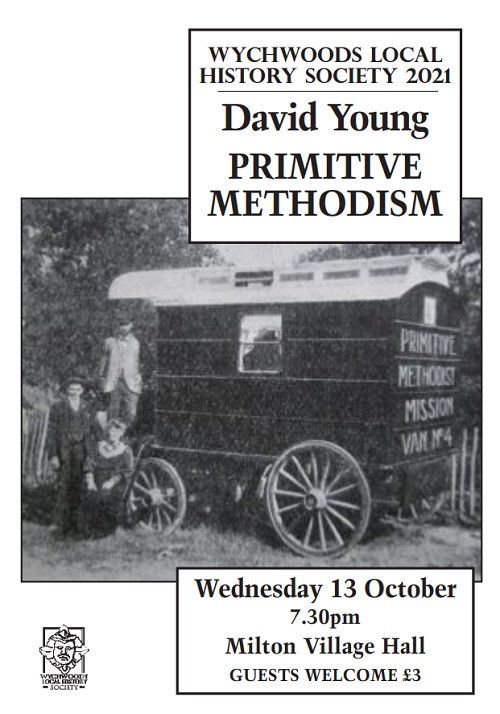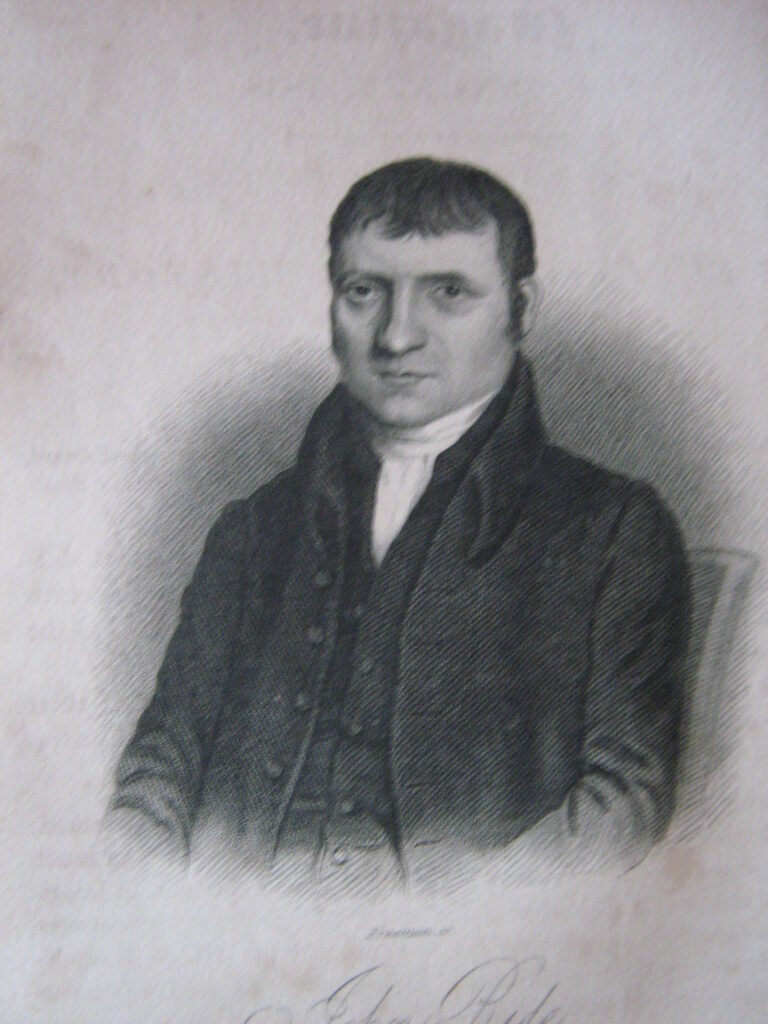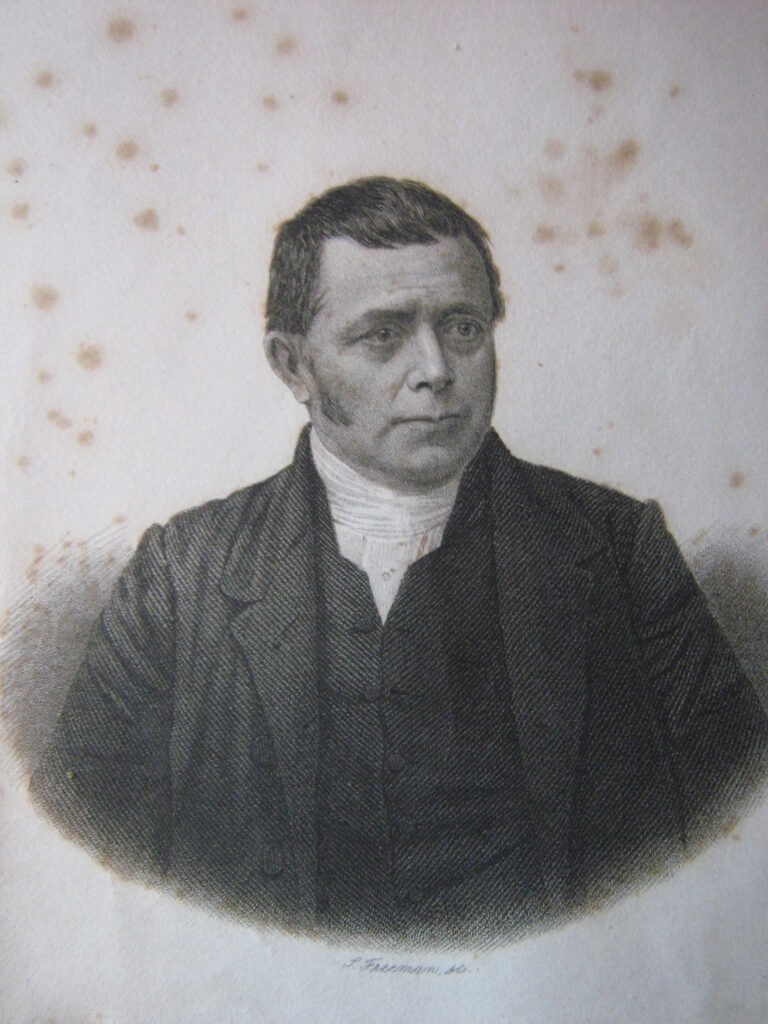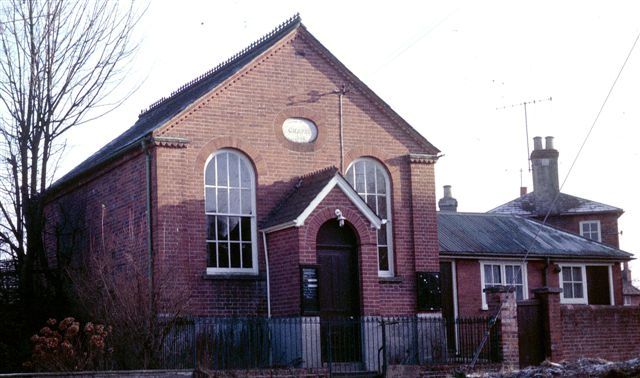
The society’s first talk of the 2021/22 season was held in the Village Hall – our first opportunity to meet socially since early 2020 and the beginning of the Covid restrictions. An attendance of 25+ made for an enjoyable gathering. The speaker was David Young on the subject of the founding and development of Primitive Methodism in the 19th Century. The success of the evening was demonstrated by the fact that we ran out of time before we ran out of questions – a sure sign that the group had been fully engaged.
Though David’s focus was on the growth of the movement in Northern Hampshire, the story is one which certainly influenced life in villages throughout the country. In our case, the Primitive Methodists established a firm foothold in the Wychwoods area from the 1830s onwards, their main local chapel being built in Milton in 1834, followed by the new chapel of 1860, still standing in The Square. In 1851 their regular weekly attendance was reported to be 110 people. For nearly 100 years they were a significant feature of life in our area; there were also Primitive Methodist Chapels locally in Lyneham, Fifield, Chilson, Churchill, Burford, Charlbury and Chipping Norton.
David’s talk charted the character of the Primitive Methodist movement, summarising the influence of leading preachers – male and female – as he did so. We learned that Primitive Methodism broke out from within Wesleyan Methodism. Its birthplace was in an area on the Staffordshire and Cheshire borders. A day-long open-air meeting of prayer and preaching took place on Sunday 31st May on a hill called Mow Cop, and it is generally accepted that this was the starting point from which all else followed. Dramatic and charismatic in style, the effects of such “camp meetings” as they were called disturbed the Wesleyan authorities. When such meetings proliferated in other locations, the movement was disowned and so became separated from the parent body.
Additionally, we learned that government authorities were wary of such gatherings and their effects – this after all was an age which had seen uprisings and the politics of revolution at home and abroad, and such large and impassioned gatherings were looked on with concern. Leading preachers, we learned, were John Ride, Thomas Russell, Edward Bishop, all of whom were imprisoned for their preaching.


This was evangelical Methodism and true revival, with many conversions especially (in Hampshire) among agricultural labourers, the word ‘primitive’ denoting their intention to be loyal to the original (that is primitive) Methodism of John Wesley.
The revival movement spread from Mow Cop to Wiltshire and Berkshire into Hampshire, first in the Bourne Valley, then to Micheldever, near Winchester and (from Reading) the Silchester area.
Progress into Hampshire developed from the establishment of “Circuits”. These were focal points of evangelical activity, exemplified on the Berkshire/Hampshire border by the Great Shefford Circuit in 1831 which was the centre of 60 “preaching places” – often homes or barns – and could count almost 1300 followers by 1833. A major highlight of the expansion Eastwards and Southwards was an 1834 camp meeting at Micheldever, which attracted 5-6,000 people and which was a beacon which established the Basingstoke Circuit, a circuit in which Elizabeth Smith was firmly involved, one of many named female preachers of the times.

David’s talk took us through images of the many chapels which were built to house the growing congregations in villages he had personally visited, and demonstrated often with good humour, the character of the work carried out in these places.
Much more of the history of Primitive Methodism can be found in the links below, and we are grateful to David for making the trip from Wrexham to present us with an interesting and absorbing history of 19th century non-conformism.
Further Information
David Young’s Website on Primitive Methodism
Youtube Video example here

